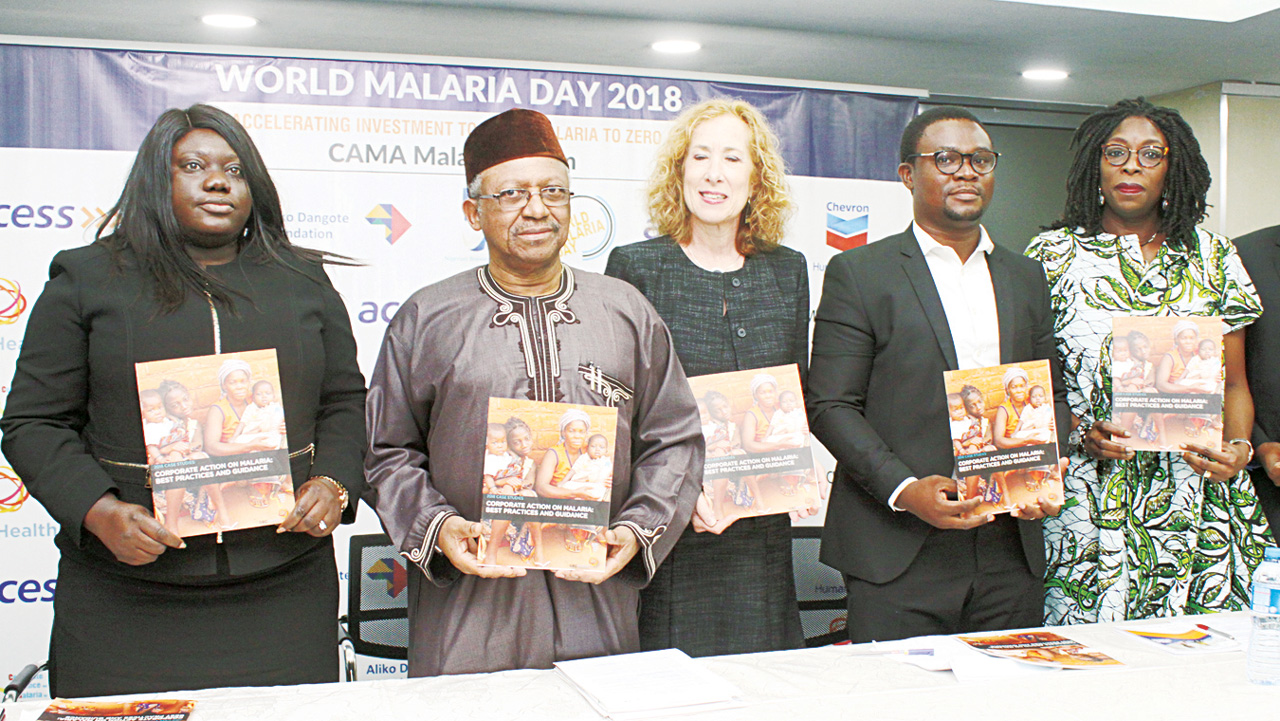
Minister seeks private sector support to fight scourge
The United States (U.S.) President’s Malaria Initiative (PMI), led by the U.S. Agency for International Development (USAID) yesterday released its 12th annual report documenting the progress of its programmes in Nigeria and other countries.
In 2017, the U.S., through the PMI, implemented with the Centers for Disease Control and Prevention (CDC), worked with partners to reach over 480 million people at risk of malaria across sub-Saharan Africa and targeted communities threatened by malaria in greater Mekong sub-region.
Use of insecticide-treated nets (ITNs) is one of the most effective measures used for malaria prevention. From 2009 – 2015, the government of Nigeria, with support from partners, distributed approximately 98 million mosquito nets.
Progress has been made to the extent that in 2010, 23 per cent of the household population slept inside ITNs compared to 37 per cent in 2015.
Malaria is a major cause and a consequence of global poverty: Its burden is greatest among the poorest and the most vulnerable in society. Malaria causes adults and children to miss work and school, further pushing them to hunger and poverty.
Reacting to the development on the sidelines of the World Malaria Day (WMD), U.S. Ambassador to Nigeria, W. Stuart Symington, said: “Malaria is a vital investment because its control is central to improving children’s survival and maternal health and contributes substantially to eradicating extreme poverty and improving educational outcomes.
“Less malaria means fewer days missed at school and work, and more productive communities.”
Yet, malaria remains a major killer of children and during pregnancies, it could pose serious, life-threatening risk to women and children.
PMI works with Nigeria’s National Malaria Elimination Programme to scale-up proven, cost-effective, and life-saving malaria control interventions, namely long-lasting insecticide-treated mosquito nets, intermittent preventive treatment for pregnant women, diagnostic testing and highly effective malaria treatment.
The U.S. government, through the PMI, however, promised to partner with Nigeria to end the malaria scourge.
Meanwhile, Minister of State for Health, Osagie Ehanire, has called on organised private sector (OPS) to join the fight against malaria in Nigeria, stating that the sector plays a key role in eliminating the disease.
Ehanire noted that companies have been successful in shaping malaria policies; impacting communities through workplace initiatives, product and service innovations, advocacy, research and investment.
The minister gave the charge in Lagos at a forum organised by Corporate Alliance on Malaria in Africa (CAMA) as part of activities to mark the world malaria day.
Also speaking, Head, Sustainability, Access Bank Plc, Omobolanle Victor-Laniyan, said substantial malaria control investments have been made in Nigeria within the last decade.



